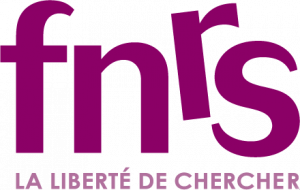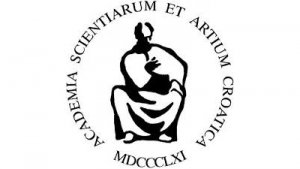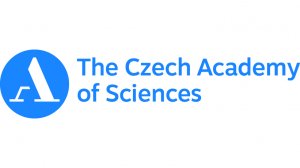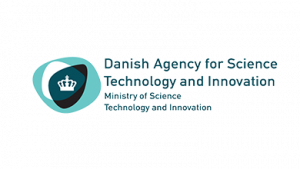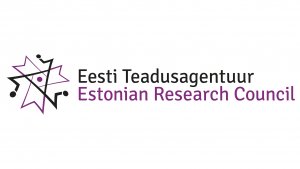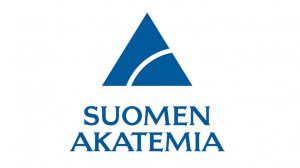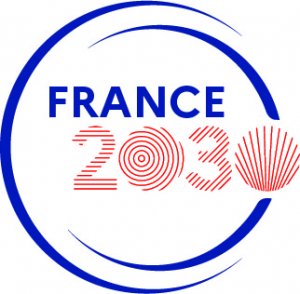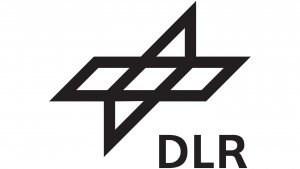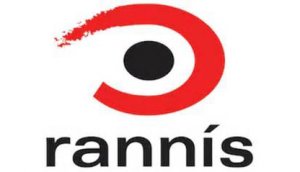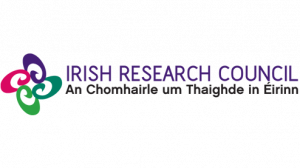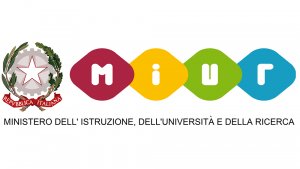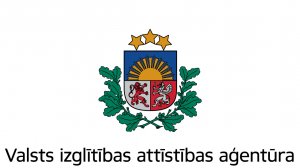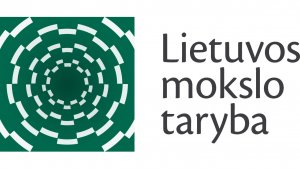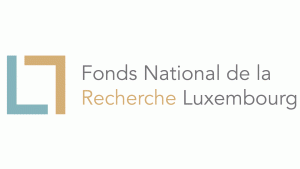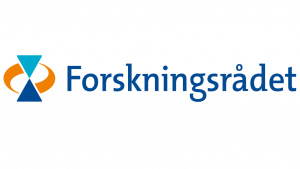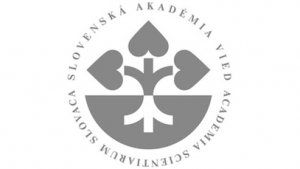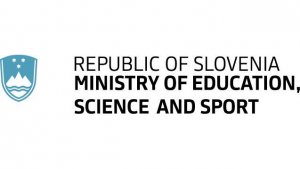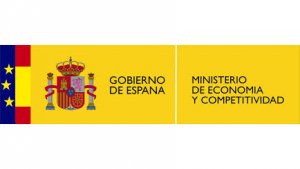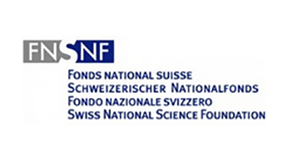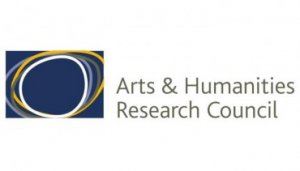HERA Joint Research Programme (HERA JRP PS)
"Public Spaces: Culture and Integration in Europe"
Currently not available
The Humanities in the European Research Area (HERA) Network has launched a new Joint Research Programme under the theme "Public Spaces: Culture and Integration in Europe" (HERA JRP PS).
Humanities perspectives are crucial to understanding the issues and formulating successful policies in this area, on that basis we wish to invite transnational consortia to submit proposals for humanities-led research. Proposed research may draw upon insights and methodologies from a wide spectrum of arts and humanities disciplines. Although humanities-driven, consortia are able to involve contributions from other research domains where appropriate.
By launching the HERA JRP PS, the national humanities funders involved want to create opportunities for humanities-led, collaborative, transnational research that will result in new academic insights relevant to major social, cultural, and political challenges facing Europe and the world.
The HERA JRP PS wants to mobilize the wide range of multi-disciplinary perspectives necessary to understanding the relationships between “public space”, culture and other phenomena, as e.g. European integration. The research is expected to give new insights that promote the full potential of citizens’ engagement with European public and cultural spaces; to stimulate public, political and scholarly debate about the future prospects of European integration, and to study new modes of interactive and reciprocal engagement between academics and various types of stakeholders including those working in the media, creative industries, and heritage sectors, as they have proved to be the true vehicles of European integration. The challenge for research is to identify how the relations between culture and integration within the context of public space(s) have been modelled and how they can be better understood in order to contribute to a better world.
The beneficiaries of this Call are eligible researchers located in the HERA JRP PS countries: Austria, Belgium (Wallonia), Czech Republic, Croatia, Denmark, Estonia, Finland, France, Germany, Iceland, Ireland, Italy, Latvia, Lithuania, Luxembourg, Netherlands, Norway, Poland, Slovakia, Slovenia, Spain, Sweden, Switzerland and United Kingdom, irrespective of their nationality.
The HERA JRP PS is co-funded by humanities funding agencies in participating countries and the European Commission, with the total budget amounting up to 20M€. The Netherlands Organisation for Scientific Research (NWO) will act as the Handling Agency managing the call and selection process on behalf of the HERA funding partners
Collaborative Research Projects (CRP) proposals can be submitted by balanced consortia involving four or more Principal Investigators eligible to HERA JRP PS funders from four or more different countries. Applicants are strongly encouraged to take equality and diversity dimension issues into consideration. Each CRP proposal can apply for research funding up to a maximum amount of 1M€ (across all partners) and should be between 24 and 36 months in duration. The HERA JRP PS will also support a number of joint knowledge exchange activities across the funded CRPs. Proposals will be selected in a two-step process involving an independent international Review Panel.
Outline Proposals must be submitted electronically via the HERA website by Tuesday 24 October 2017, 14:00 CEST (Central European Summer Time). In February 2018, successful applicants will be invited to submit Full Proposals with the deadline in May 2018. Funded projects must start by May 2019 and end no later than May 2022.
Before applying, please read carefully the theme specification and guidelines for applicants below, and the national eligibility requirements. If you have any questions regarding the application and selection process, please contact the HERA JRP Handling Agency. If you have any queries concerning national eligibility requirements, please contact your national funding agency. Contact details are provided below.
Aims and scope
HERA Network Objectives
Humanities in the European Research Area (HERA) is a partnership of a growing number of national humanities funding agencies across Europe. Since its establishment in 2004, HERA has been committed to a vision of European researchers working across countries and across disciplines to address large-scale societal, cultural, historical and philosophical issues in ways not normally possible within conventional national programmes or at the level of the individual researcher. The benefits of this are becoming clearer as we move forward.
HERA projects funded under its first two Joint Research Programmes (JRPs) from 2009 to 2013 ("Cultural Dynamics"/"Creativity and Innovation") and 2013-2016 "Cultural Encounters" have not only produced important, innovative research; they have also built new networks for future projects, have trained a cohort of new researchers, and have promoted knowledge exchange between the humanities and the wider domains of the arts, industry, cultural institutions, education and media.
The third HERA JRP "Uses of the Past" runs from 2016 to 2019. More information about HERA and about the projects that were funded in previous HERA JRPs can be found on the HERA website.
Theme and Scope "Public Spaces: Culture and Integration in Europe"
We are seeking innovative humanities-led research proposals addressing the theme of Public Spaces: Culture and Integration in Europe. We encourage applicants to consider not only the context and scope below but also the European added value of their proposed collaboration. HERA funding is very competitive and it is vital that it is clearly articulated how the research not only addresses this theme but that it demonstrates how the European collaboration results in more than the sum of its individual national parts.
Through time, public spaces have acted as open domains of human encounters and exchanges, often negotiated or contested. Public spaces are closely connected with the expression and exchange of values and beliefs and with the formation and appropriation of institutions, and thus public spaces lend themselves to cultural analysis of these processes and structures.
The aim of the HERA “Public spaces” programme will be to deepen the theoretical and empirical cultural understanding of public spaces in a European context. The programme has been designed to facilitate a broad range of cultural approaches to conceptualising public space, its structural and processual formations, and its possible outcomes in terms of integration, exclusion, disintegration, fragmentation, hybridization, amalgamation or transmission.
In relationship to the present call, public spaces are understood to encompass both material and symbolic dimensions, both the spheres of institutions and practices. These dimensions can be studied in a historical and contemporary context; across domains of expression, circulation and reception; at local, national and transnational level; and across their physical and virtual manifestations - and interlacings of all of these. Studies may include landscapes, cityscapes, institutions (including museums, libraries, galleries, cinemas) and material culture. They may also include processes and practices, such as artistic production, performance, various forms of a public discourse, dissent and protest in both physical and virtual spaces defined by media and communication. This inclusive approach will facilitate wide-ranging, innovative and interdisciplinary responses to the JRP.
The call imagines the key terms and concepts of the topic in the following way.
While cultural analysis is key to understanding the nature and role of public space itself, there is also an urgent need to understand how public spaces impact structures and processes of integration as possible results of such an interplay. To study this interplay is a particularly timely task since public spaces, whether material, symbolic or virtual are major scenes for a range of responses to the challenges of migration, globalization and digitization. In this process, the idea as well as the phenomenon of public space has undergone important changes, as it is a the lens to examine and to determine the process of cultural mobility, in its various forms, (e.g. differing values, traditions, ethnicities and gender identities) within overarching frameworks such as citizenship, community, cultural identity, nationality and globalisation, has been a challenge across the world and through historical time. On the one hand, the European project is seen as a way of overcoming divisive conflicts and promoting tolerance and respect, and as a source of creative innovation. On the other hand, it is also argued that in certain circumstances the effects of integration may have negative effects of disempowerment and erasure of local or pre-existing identities. The concept and practice of integration (or the lack of it) is related strongly to contemporary societal challenges involving migration, inequality, disenfranchisement, intolerance, xenophobia, extremism, and ethnic conflict. Within Europe, the concept of integration has clear relevance to the debates over the future of the European Union, and the relations among northern, western, eastern, southern and central European regions. Particular discourses around integration tend to be highly politicised and are often contested.
In today’s world, the contexts of public spaces are very often marked by processes of migration; and they have been further intensified by globalisation and digitalisation. The societal and cultural effects of such developments range from positive dynamics of creativity, renewal and innovation to more challenging experiences of tension and conflict. Integration is sometimes seen as a condition for the successful management of differences and divergences within larger cultural, political, religious or ideological frameworks (including frameworks like national or European identity, liberal democracy, or particular religions and value-systems). Yet processes of integration can also be a form of constraint and limitation, and carry complex political significance. In order to better understand these dynamics, research is needed into public spaces and the role of cultural activity in relation to integration, and into the relationship of cultural processes to varieties of public space where processes of integration / disintegration / exclusion are articulated, debated, negotiated or rejected.
We are inviting proposals that consider these challenges explicitly from a humanities’ perspective while recognising that interfaces between the humanities and other disciplines may also be relevant to this research topic area.
Scope of the transnational call
CRPs under this topic should explore the dynamics through which public spaces shape, and are shaped, by cultural activity, and how various forms of dis/integration can be understood in relation to such spaces. This will involve investigating a variety of perspectives, for example:
- the concepts of and approaches to public space(s);
- historical patterns and forms of public space(s), and the relevance of such patterns;
- the formation of public space(s) through institutional and non-institutional activities;
- the roles played by culture, art and creativity in shaping public spaces;
- the impact of migration on culture and the creation and use of public spaces;
- the role of public spaces in both enabling or challenging models of integration.
This HERA Joint Research Programme will support innovative, humanities-led research into the relationships between public space(s), culture and integration. Whilst the programme does not preclude comparison or investigation into other regions, every proposal must have a strong European dimension (i.e. investigating a public space of relevance to Europe as a whole), or should be analysing comparative European aspects at the level of specific countries, cities, communities etc.
Knowledge exchange
Knowledge exchange (KE) is a two way process which brings together academic staff, users of research and wider groups and communities to exchange ideas, evidence and expertise. It is a process of working collaboratively, and is most effective when these relationships are established at the very start of the proposal.
Knowledge exchange activities are a crucial dimension to any proposed research project. In addition to the networking that takes place among academic partners and broader dissemination activities aimed at wider academic audiences, projects are also expected to develop links with stakeholders outside the academy in order to maximise the societal benefit of the research. For example, collaborations may include the public sector, voluntary, community and charitable organisations, policy makers, the creative, cultural and heritage sectors, broadcasters, museums, galleries, business, industry, and practitioners (e.g. in the creative and performing arts). Collaborations should be meaningful for all partners involved and enable joint learning throughout the duration of the project and beyond. Public engagement activities may also be included to promote a wide understanding of the nature and impact of "public spaces: culture and integration in Europe".
It is recognised that you may not know the impact of your research at proposal stage. However, a knowledge exchange perspective should be included in the application, and we encourage applicants to explore, from the outset and throughout the life of your project and beyond, who could potentially benefit from your research and what you can do to help make this happen. Proposals should therefore include concrete plans for collaboration and knowledge exchange, demonstrating potential audiences, how these activities will add significant value to the research, and how your knowledge exchange activities will be monitored and evaluated throughout and beyond the project. Active inclusion of non-academic partners from the preparation phase of the project is encouraged.
Guidelines for applicants
Outline Proposals must be submitted via the online submission system before the deadline of Tuesday 24 October 2017, 14:00 CEST (Central European Summer Time). The link to the online submission system and the template for Outline Proposals are available on the HERA website. Other relevant documentation available on the website includes National Eligibility Requirements, HERA JRP Glossary, Frequently Asked Questions (FAQs) and Knowledge Exchange Guidance for Applicants (KE Guide).
Project Structure and roles of project partners
Each Collaborative Research Project (CRP) must comprise at least four eligible Principal Investigators (PI), based in institutions eligible to HERA JRP PS funders from four or more different countries. The CRP is led by one of the PIs, the Project Leader. Applicants are strongly encouraged to take equality and diversity dimension issues into consideration. Each project team should strive to include researchers early in their careers, as participants in the project. HERA strives to promote gender equality, and encourages female researchers in particular to apply.
The Project Leader (PL) is responsible for carrying out and managing the CRP, in addition to his/her project related research. The PL is a researcher with a solid experience of managing collaborative research projects. S/he will be the contact point for the HERA JRP Handling Agency throughout the application and running phase and is responsible for communication with the other partners of his/her CRP. The PL is responsible for the intellectual agenda and coherence of the project, as well as the administrative and financial management of the complete CRP including the reporting duties.
Each Principal Investigator (PI) is responsible for leading research activities at his/her institution. A Ph.D. is prerequisite for application as PI, however, in some countries applicants with equivalent research experience are also eligible to apply. Other researchers (senior researchers, post-doctoral researchers, Ph.D. students) can be part of the PI’s project team and should be referred to as Project Team Members. Please consult the National Eligibility Requirements for full information. Some PIs will have additional reporting duties to their national agency regarding administrative and financial matters. See national eligibility and funding conditions for more details.
Associate Partners (AP) are stakeholders, for example in the public sector, policy makers, and the creative and cultural sectors, who may provide significant added value and valuable insights to the CRP from the user’s perspective. They can be included in the proposal in a collaborative and advisory capacity to help explore the knowledge exchange potential of the proposed research.
A CRP may comprise researchers from non-HERA JRP PS countries in the form of Cooperation Partners (CPs) in order to strengthen the research capacity of the consortium. Note that Cooperation Partners may only be added to an eligible HERA JRP PS consortium and that they cannot apply for HERA JRP PS funding themselves (see Eligibility).
In order to be evaluated, proposals must be:
- submitted via the online application system before the submission deadline;
- submitted by an eligible research consortium. Note that if one of the research partners in a CRP consortium is not eligible then the whole consortium is not eligible;
- complete and follow the prescribed format.
Eligibility
Eligibility of applicants
Only applicants eligible to the HERA JRP PS funding organisations in the following countries can apply, irrespective of their nationality: Austria, Belgium (Wallonia), Croatia, Czech Republic, Denmark, Estonia, Finland, France, Germany, Iceland, Ireland, Italy, Latvia, Lithuania, Luxembourg, Netherlands, Norway, Poland, Slovakia, Slovenia, Spain, Sweden, Switzerland and United Kingdom.
Each Collaborative Research Project (CRP) must comprise at least four Principal Investigators, each based in an eligible university or a research institute in a different HERA JRP PS country.
Depending on the national eligibility requirements, each applicant must either be considered eligible for funding by the HERA JRP PS country where (s)he works or apply on behalf of an organisation eligible for funding for a HERA JRP PS funder.
Please read carefully the National Eligibility Requirements available from the HERA website. If you have any queries, contact your respective national funding organisations.
A Principal Investigator (PI) can participate as a PI or Project Leader (PL) in a single HERA JRP PS proposal only. If a PI is participating in more than one proposal, all these proposals will be declared ineligible and will not be evaluated.
The Project Leader (PL) will be one of the Principal Investigators (PI) in the CRP and will act as coordinating partner.
Each CRP will be coordinated by a Project Leader (PL) who is responsible for the research leadership and administrative coordination of the CRP.
The consortium partners in the participating countries in the CRP will each assign one Principal Investigator (PI) per institute to coordinate the administrative and financial responsibilities of the CRP at the institutional level.
The team of each Principal Investigator (PI) may include a number of other senior and/or junior researchers (Project Team Members) carrying out the actual research planned.
For each Associate Partner (AP) a letter of commitment must be submitted which specifies the contribution of the partner to the CRP. The contribution of these partners to the CRP’s knowledge exchange potential should be well integrated in the workplan. No CVs of Associate Partners may be included in the proposal.
The contribution of Cooperation Partners (researchers from non-HERA JRP PS countries) to the project must be specified in the description and planning of the CRP. For each CP a letter of commitment must be submitted, specifying the contribution to the project. Note that CPs cannot function as PI; CVs may not be included.
Eligible costs
The total budget requested from the HERA JRP must not exceed 1M € across all participating partners.
CRPs must be between 24 and 36 months in duration. CRPs must start by May 2019 and finish by May 2022 at the latest.
The estimated budget must be given in Euros only and be tabulated according to the application template provided.
All costs must be eligible according to national eligibility rules. Eligible costs will generally include direct costs such as employment costs (PL, PIs, and other Project Team Members, e.g. Ph.D. students, researchers, administrative personnel, etc.), equipment, travel and meeting costs, consumables, dissemination and knowledge transfer costs as well as the overheads. Please read the National Eligibility Requirements to verify the eligibility of specific budget items according to the rules of your national funding organisation. If you have any queries, contact the contact person in your respective national funding organisation.
Projects will also be expected to engage in knowledge exchange activities regarding the outcomes of the CRPs. Costs for these activities must be included in the proposal in addition to the costs for research (subject to national eligibility rules). Please also see the section on knowledge exchange.
Associate Partners and/or Cooperation Partners cannot themselves apply for HERA JRP PS funding. However certain costs (e.g. travel and subsistence costs for attending CRP-related events as well as subcontracting) may be reimbursed, depending on National Eligibility Requirements and National Funding Rules. Commitments from AP and CP must be articulated in letters of commitment, and financial aspects can be recorded in the budget table in the section ‘to be funded from additional funds’.
The costs for the participation at the HERA JRP "Public Spaces: Culture and Integration in Europe" Launch, Mid Term and Final Conferences must be included in your travel cost estimates. The conferences will each be a one and a half days event taking place in one of the HERA JRP PS countries. On average for one to two days events, costs to be budgeted per person are € 850, which means that when there are four PIs and 2 APs in a consortium on average € 15,300 must be budgeted for participating in HERA JRP PS meetings. If you have numerous PIs and APs, please budget for no more than 6 people per event (launch, mid and final event) as it is likely that attendance per project will be limited.
Recipients of HERA JRP PS funding are required to use Open Access publishing wherever possible (see section Open Access). Costs related to Open Access publishing may be eligible for funding depending on the National Eligibility Requirements relevant to the partners in the CRP.

